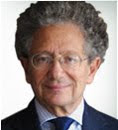The fundamental question about how to deal with Russia remains a divisive issue, however. France and Germany have different sensitivities on the subject, which is both natural and inevitable, as these differences reflect both geography and history.
Germany is not only much closer physically to Russia; it is also much more dependent on Russia in terms of energy security. France must not delude itself: Germany is not about to convert to nuclear energy to reduce its reliance on Russian oil and gas. Yet Germany also must realize that Russia’s negative evolution has consequences that Germans cannot escape.
A spectacular Franco-German security initiative following the election in Germany, accompanied by a joint message to the Kremlin, would also have the benefit of sending a message to the rest of the EU, particularly to its Václav Klauses: “If you decide to paralyze the Union through stubborn ill will, you will only end up excluding yourselves, rather than dictating Europe’s fate.”
France and Germany cannot move Europe alone, but Europe without them cannot move at all. (via the Kosovo Times), (photo: Project-Syndicate)
Dominique Moisi boldly argues for European cooperation against the alternative, yet who is arguing against Europe cooperation? Perhaps leaders and nations can either support his particular view of European cooperation or be labeled as against any European cooperation? Moisi equates alternative views of European cooperation to attempts to “paralyze the Union,” and then issues a strong warning to Central Europeans and others that such alternatives views for improving cooperation in Europe are just “stubborn ill will” and will not succeed if France and Germany work in concert.
There are many Europeans, in France and Germany in particular, who do not see the marginal value of taking additional power from their elected national governments and giving it to the bureaucracy in Brussels. Trying to do so in the name of Franco-German “leadership” of Europe, may not be enough to secure domestic support in the two largest EU nations. Furthermore, Moisi’s “take it or leave it” attitude might not be the most persuasive to voters in the rest of the member states.
